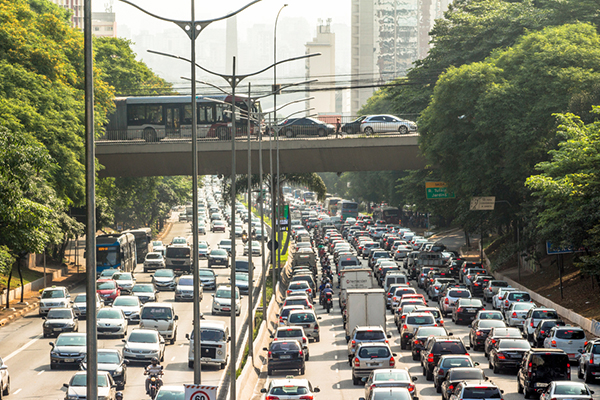RESOLUTION: REsilient Systems fOr Land Use TransportatION

In a context of rapid urban growth, cities across the world are increasingly defined by inequality. RESOLUTION: REsilient Systems fOr Land Use TransportatION, a collaborative project between Brazilian and British academics, explores the impacts of unequal access to transport on different social groups in London and São Paulo. To this end, the team will build agent based models of how populations compete for travel and location.
Through a comparative study of these two world cities, the project will identify similarities and differences between them to tease out the broader social implications of transport access on mobility, segregation and other trends. The research will include a particular emphasis on how resources are distributed depending on class, ethnicity and income.
The results will be of relevance to a range of stakeholders, including policy makers, academics and planners, working on improving opportunities for marginalised groups through more equitable transport systems. As the focus is comparative and global, the findings will have broader implications not only for London and São Paulo but also other large cities facing the same challenges.
This project is co-funded by the São Paulo Research Foundation (FAPESP).
Michael Batty (Principal Investigator, Professor of Planning)
Joana Barros (Lecturer in Geographic Information Science)
Flavia Feitosa (Associate Professor, funded by FAPESP)
Andy Hudson-Smith (Reader in Digital Urban Systems)
Eduardo Marques (Professor of Political Science, funded by FAPESP)
Chen Zhong (Research Associate)
Development of a comparative evidence base on social segregation and transport access in London and São Paulo.
Measuring mobility and segregation in metropolitan São Paolo and London
External blogposts by Michael Batty